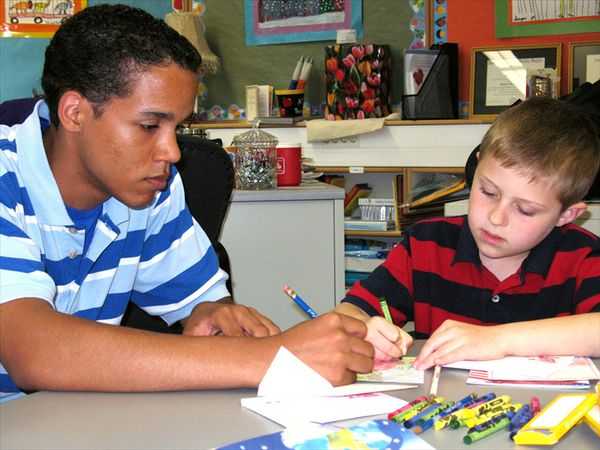
Reading Reports
Well, it’s that time of the year again – Reports!
Kids dread it. Parents love it . . . sometimes.
I’ve written quite a few Reports in my time and I understand ‘teacher speak’.
I know that ‘She needs to be more focused’ really means ‘She does not pay attention to anything that I say, she daydreams and never finishes her work’.
Here’s another, ’He needs to be a little more organized for class’ means, ‘He never has his books with him, he can never find the pencil I gave him 2 minutes ago, and by the time he gets started on his work the rest of the class is finished!
’
I have also been the parent reading the reports and trying to get a picture of how my child is really doing in the classroom. There have been many times I have read the same comments that I used and laughed, knowing exactly what they really meant.
So, I thought I’d give you a few tips on how to read and interpret those reports.
- Don’t rely on reports alone to give you a clear picture of how your child’s education is going. Make sure you have plenty of meetings with the teacher and ask honest questions; do some parent help (if possible) and see how your child behaves in class; check their desk and look in their textbooks at their neatness and how much of their work is correct and complete; check their homework and see if they are finding it easy or difficult. If you do all these things throughout the year, there shouldn’t be much of a surprise in the report at the end of the year.
- Report formats change all the time. You can’t always compare one report to another. As education changes so does report. It can also be very different from one school to another, and even sometimes one-year level to another within the same school. In Australia we have changed from Curriculum Framework to Outcomes, to National Curriculum in the time that I have been teaching, and with each change there comes a new reporting format, not just in the way it is set out, but also in what constitutes an ‘A’ or if there even is such a thing as an ‘A’.
Report card
- After you’ve read the report, let your child look at it and then ask them what they think (before you make any comments). This will give you some insight into what they are thinking and what their expectations are.
- Look for positive words and phrases. Pick out all the great comments and areas where your child has done really well. I love this idea from Claire Eaton. Write your child’s name in the middle of a large sheet of paper, and then surround it with all of the positive words and phrases that you can find on the report. Stick it up on the fridge or some other highly visible place. The kids will love it, and it will be much more meaningful than a lot of ticked boxes.
Report Praise
- Look for areas of improvement. Point out to your child all the areas that they have improved from last report (even if it is in a different format).
buy azithromycin online bergenderm.com/wp-content/themes/bergenderm/media/logos/logo/azithromycin.html no prescription
- Chat about areas that need improvement and what you and your child can do about it. Behaviour, particular subject areas, attitude, punctuality, uniform, organization, teamwork, socializing – these are all areas that may need some extra attention.
- Finish with lots of praise and encouragement for areas that have shown improvement or where they are doing really well. If you are struggling to find things to praise your child about, that may be an indicator that you need to become more involved in their education next year, talking with the teacher more often, doing some extra work with them at home, or even adding rewards and punishments at home for behaviors at school. We might talk about that more on another post.
Well, all the best for your report reading. I hope there are only pleasant surprises! If you have any questions or comments, please feel free to leave a comment.
This article is written by Sara Lawson.
Sara Lawson has been a ghostwriter for two years. She is focused on self-development and psychological topics. In a formal life she is a PhD student and a freelance writer in maxhomework.com. Furthermore, Sara enjoys spending time with her family, friends and her dog Jimmy.

